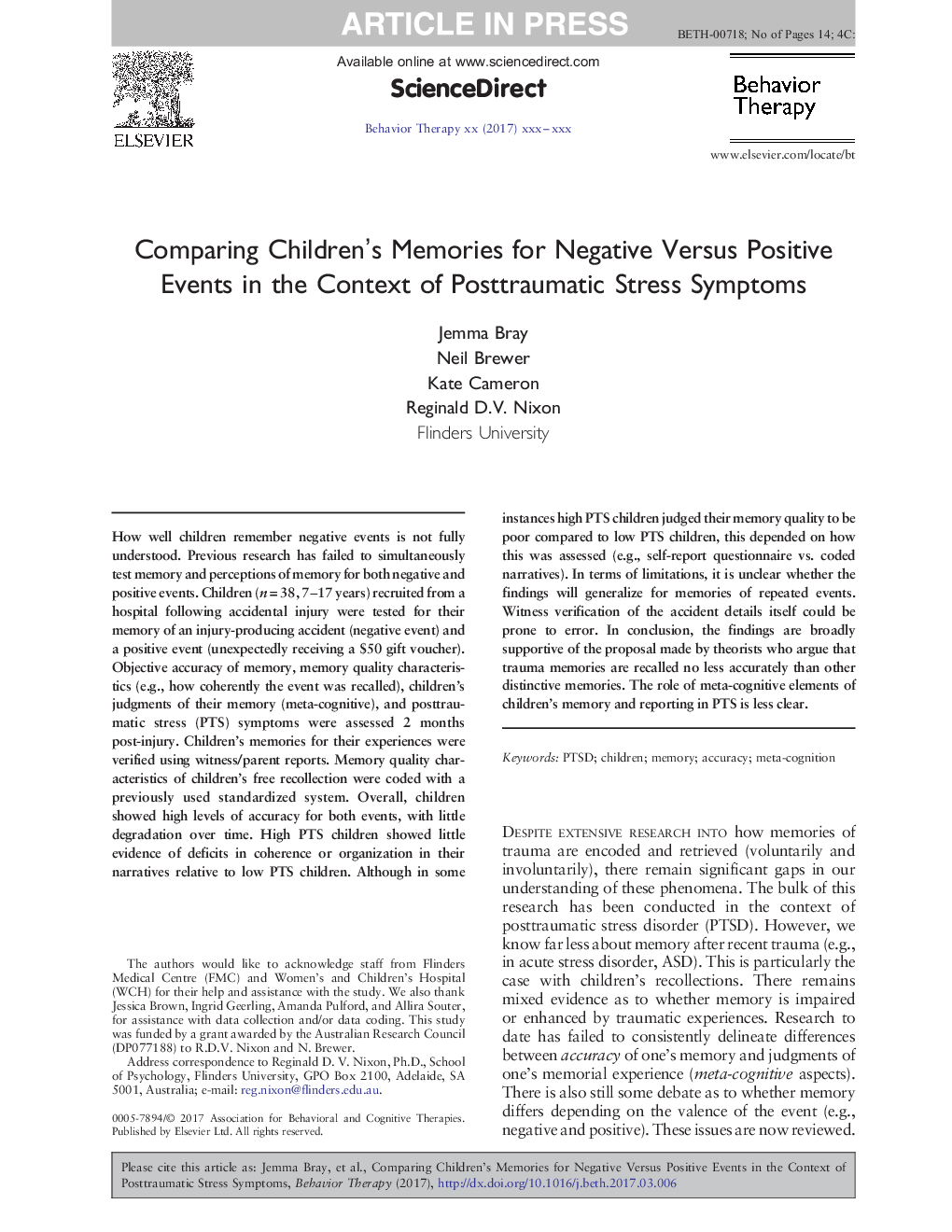ترجمه فارسی عنوان مقاله
مقایسه خاطرات کودکان و نوجوانان در مورد منافع در برابر رویدادهای مثبت در معرض علائم استرس پس از زایمان
عنوان انگلیسی
Comparing Childrenâs Memories for Negative Versus Positive Events in the Context of Posttraumatic Stress Symptoms
| کد مقاله | سال انتشار | تعداد صفحات مقاله انگلیسی |
|---|---|---|
| 119962 | 2018 | 14 صفحه PDF |
منبع

Publisher : Elsevier - Science Direct (الزویر - ساینس دایرکت)
Journal : Behavior Therapy, Volume 49, Issue 1, January 2018, Pages 32-45

